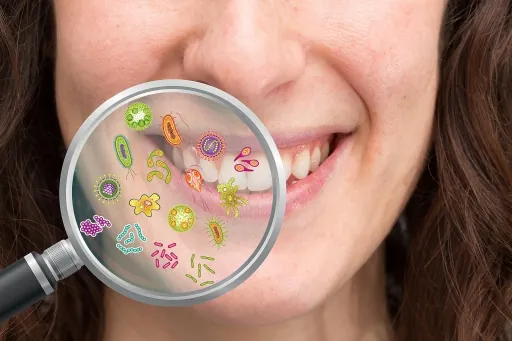
Unlocking the Secrets of Your Mouth: How Your Diet May Shape Your Oral Health!
2025-04-11
Author: Ming
Are You Eating Your Way to a Healthier Mouth?
BUFFALO, N.Y. – In a groundbreaking study from the University at Buffalo, researchers have uncovered a remarkable connection between diet quality and the oral microbiome, specifically targeting postmenopausal women.
The study, featured in the Journal of Nutrition, reveals that women who indulge in healthier diets have a strikingly lower presence of harmful bacteria, including Streptococcus gordonii, known to contribute to gum disease, and Cardiobacterium species, linked to heart infections.
Digging Deeper: The Role of Diet Quality
The researchers evaluated the eating habits of 1,175 postmenopausal women by calculating their Healthy Eating Index 2020 (HEI-2020) scores based on food frequency questionnaires. This index measures how closely a person's diet aligns with the Dietary Guidelines for Americans.
While overall HEI-2020 scores were tied to the composition of the oral microbiome, they did not influence its diversity. However, specific components of the HEI-2020 signaled potential differences in diversity, with higher intake of vegetables and protein foods leading to richer microbiome diversity, while dairy and added sugars resulted in diminished diversity.
The Bigger Picture: Interactive Effects of Food
Yihua Yue, PhD, the study’s lead author, emphasizes the importance of studying diet holistically rather than isolating individual nutrients. "People eat various foods together, and their combined effects can have interactive health outcomes," she remarks. This approach highlights how a balanced, quality diet can significantly enhance oral health.
Connecting the Dots: Oral Health and Chronic Diseases
Research also suggests a troubling correlation between periodontal disease and increased risks of serious conditions—like cancer and cardiovascular disease—especially those tied to inflammation, as stated by Amy Millen, PhD, the study's corresponding author. Yet, the scientific community remains divided over whether diet alone causes these outcomes.
Recommendations for a Healthier Microbiome
Millen notes, "We know nutrition is a vital factor in many inflammatory diseases. Our investigation aims to decipher if nutritional habits are predictors of periodontal disease, as harmful oral bacteria play a causal role in its development." This suggests that dietary improvements could be key in preventing oral and systemic health issues.
The HEI-2020 encompasses 13 components tied to diet quality, and while higher scores across these components are linked to better health, they don’t uniformly impact oral microbes. Yue stresses that certain dietary recommendations, particularly around sugar, vegetables, and plant-based proteins, could crucially influence oral microbiome health.
A Call for Broader Research
Although this study focused on postmenopausal women—a group notably at risk for gum disease due to hormonal changes—the authors advocate for future studies to include a wider demographic to enrich our understanding of the link between diet and oral health.
As the analysis continues, it sparks conversations about how what we eat may not just fill our stomachs but could also be pivotal in shaping our oral health for years to come. So, what’s on your plate today?



 Brasil (PT)
Brasil (PT)
 Canada (EN)
Canada (EN)
 Chile (ES)
Chile (ES)
 Česko (CS)
Česko (CS)
 대한민국 (KO)
대한민국 (KO)
 España (ES)
España (ES)
 France (FR)
France (FR)
 Hong Kong (EN)
Hong Kong (EN)
 Italia (IT)
Italia (IT)
 日本 (JA)
日本 (JA)
 Magyarország (HU)
Magyarország (HU)
 Norge (NO)
Norge (NO)
 Polska (PL)
Polska (PL)
 Schweiz (DE)
Schweiz (DE)
 Singapore (EN)
Singapore (EN)
 Sverige (SV)
Sverige (SV)
 Suomi (FI)
Suomi (FI)
 Türkiye (TR)
Türkiye (TR)
 الإمارات العربية المتحدة (AR)
الإمارات العربية المتحدة (AR)